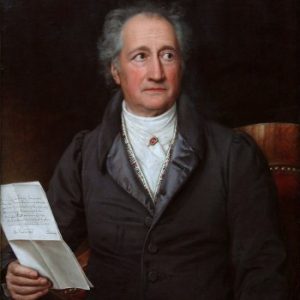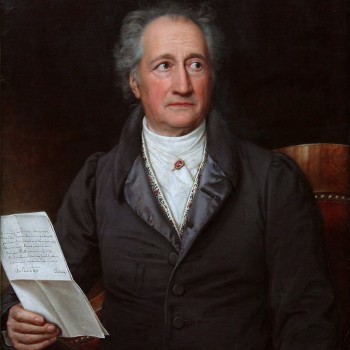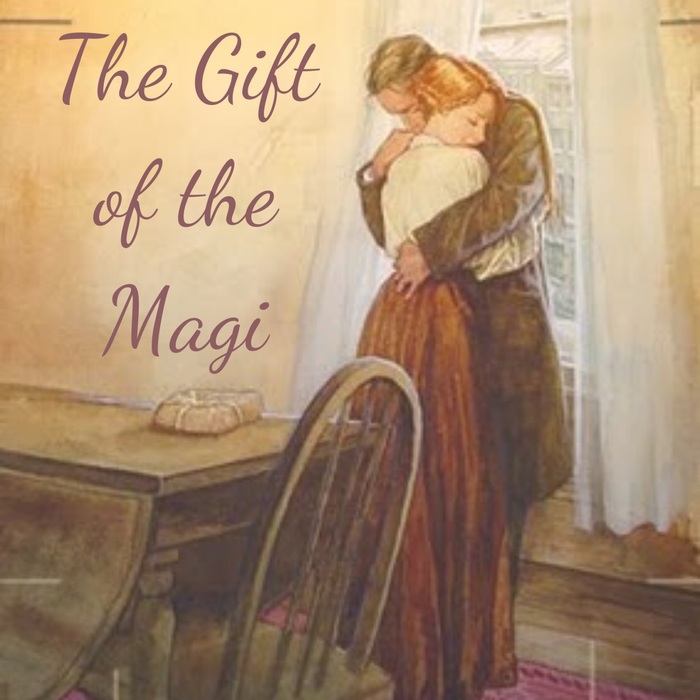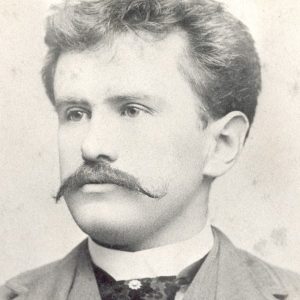Fleurs du Mal Magazine


Or see the index

Invictus
Out of the night that covers me,
Black as the pit from pole to pole,
I thank whatever gods may be
For my unconquerable soul.
In the fell clutch of circumstance
I have not winced nor cried aloud.
Under the bludgeonings of chance
My head is bloody, but unbowed.
Beyond this place of wrath and tears
Looms but the Horror of the shade,
And yet the menace of the years
Finds and shall find me unafraid.
It matters not how strait the gate,
How charged with punishments the scroll,
I am the master of my fate,
I am the captain of my soul.
William Ernest Henley
(1849—1903)
Invictus
• fleursdumal.nl magazine
More in: Archive G-H, Archive G-H, Henley, William Ernest

Der Sänger
Was hör ich draußen vor dem Tor,
Was auf der Brücke schallen?
Laß den Gesang vor unserm Ohr
Im Saale widerhallen!
Der König sprachs, der Page lief;
Der Knabe kam, der König rief:
Laßt mir herein den Alten!
Gegrüßet seid mir, edle Herrn,
Gegrüßt ihr, schöne Damen!
Welch reicher Himmel, Stern bei Stern!
Wer kennet ihre Namen?
Im Saal voll Pracht und Herrlichkeit
Schließt, Augen, euch; hier ist nicht Zeit,
Sich staunend zu ergetzen.
Der Sänger drückt’ die Augen ein
Und schlug in vollen Tönen;
Die Ritter schauten mutig drein,
Und in den Schoß die Schönen.
Der König, dem das Lied gefiel,
Ließ, ihn zu ehren für sein Spiel,
Eine goldne Kette holen.
Die goldne Kette gib mir nicht,
Die Kette gib den Rittern,
Vor deren kühnem Angesicht
Der Feinde Lanzen splittern;
Gib sie dem Kanzler, den du hast,
Und laß ihn noch die goldne Last
Zu andern Lasten tragen.
Ich singe, wie der Vogel singt,
Der in den Zweigen wohnet;
Das Lied, das aus der Kehle dringt,
Ist Lohn, der reichlich lohnet.
Doch darf ich bitten, bitt ich eins:
Laß mir den besten Becher Weins
In purem Golde reichen.
Er setzt’ ihn an, er trank ihn aus:
O Trank voll süßer Labe!
O wohl dem hochbeglückten Haus,
Wo das ist kleine Gabe!
Ergehts euch wohl, so denkt an mich,
Und danket Gott so warm, als ich
Für diesen Trunk euch danke.
Johann Wolfgang von Goethe
(1749-1832)
Der Sänger
•fleursdumal.nl magazine
More in: # Music Archive, Archive G-H, Archive G-H, Goethe, Johann Wolfgang von, J.W. von Goethe

I Am The Reaper
I am the Reaper.
All things with heedful hook
Silent I gather.
Pale roses touched with the spring,
Tall corn in summer,
Fruits rich with autumn,
and frail winter blossoms—
Reaping, still reaping—
All things with heedful hook
Timely I gather.
I am the Sower.
All the unbodied life
Runs through my seed-sheet.
Atom with atom wed,
Each quickening the other,
Fall through my hands,
ever changing, still changeless.
Ceaselessly sowing,
Life, incorruptible life,
Flows from my seed-sheet.
Maker and breaker,
I am the ebb and the flood,
Here and Hereafter,
Sped through the tangle and coil
Of infinite nature,
Viewless and soundless
I fashion all being.
Taker and giver,
I am the womb and the grave,
The Now and the Ever
William Ernest Henley
(1849—1903)
I Am The Reaper
• fleursdumal.nl magazine
More in: Archive G-H, Archive G-H, Henley, William Ernest

Eins und Alles
Im Grenzenlosen sich zu finden,
Wird gern der Einzelne verschwinden,
Da löst sich aller Überdruß;
Statt heißem Wünschen, wildem Wollen,
Statt läst’gem Fordern, strengem Sollen
Sich aufzugeben ist Genuß.
Weltseele, komm’ uns zu durchdringen!
Dann mit dem Weltgeist selbst zu ringen
Wird unsrer Kräfte Hochberuf.
Teilnehmend führen gute Geister,
Gelinde leitend, höchste Meister,
Zu dem, der alles schafft und schuf.
Und umzuschaffen das Geschaffne,
Damit sich’s nicht zum Starren waffne,
Wirkt ewiges lebend’ges Tun.
Und was nicht war, nun will es werden
Zu reinen Sonnen, farbigen Erden,
In keinem Falle darf es ruhn.
Es soll sich regen, schaffend handeln,
Erst sich gestalten, dann verwandeln;
Nur scheinbar steht’s Momente still.
Das Ewige regt sich fort in allen:
Denn alles muß in Nichts zerfallen,
Wenn es im Sein beharren will.
Johann Wolfgang von Goethe
(1749-1832)
Eins und Alles
•fleursdumal.nl magazine
More in: Archive G-H, Archive G-H, Goethe, Johann Wolfgang von, J.W. von Goethe

Philine
Singet nicht in Trauertönen
Von der Einsamkeit der Nacht!
Nein, sie ist, o holde Schönen,
Zur Geselligkeit gemacht.
Wie das Weib dem Mann gegeben
Als die schönste Hälfte war,
Ist die Nacht das halbe Leben,
Und die schönste Hälfte zwar.
Könnt ihr euch des Tages freuen,
Der nur Freuden unterbricht?
Er ist gut, sich zu zerstreuen;
Zu was anderm taugt er nicht.
Aber wenn in nächt′ger Stunde
Süßer Lampe Dämmrung fließt,
Und vom Mund zum nahen Munde
Scherz und Liebe sich ergießt;
Wenn der rasche lose Knabe,
Der sonst wild und feurig eilt,
Oft bei einer kleinen Gabe
Unter leichten Spielen weilt;
Wenn die Nachtigall Verliebten
Liebevoll ein Liedchen singt,
Das Gefangnen und Betrübten
Nur wie Ach und Wehe klingt:
Mit wie leichtem Herzensregen
Horchet ihr der Glocke nicht,
Die mit zwölf bedächt′gen Schlägen
Ruh′ und Sicherheit verspricht!
Darum an dem langen Tage
Merke dir es, liebe Brust:
Jeder Tag hat seine Plage,
Und die Nacht hat ihre Lust.
Johann Wolfgang von Goethe
(1749-1832)
Philine
•fleursdumal.nl magazine
More in: Archive G-H, Archive G-H, Goethe, Johann Wolfgang von, J.W. von Goethe

Totentanz
Der Türmer, der schaut zu Mitten der Nacht
Hinab auf die Gräber in Lage;
Der Mond, der hat alles ins Helle gebracht;
Der Kirchhof, er liegt wie am Tage.
Da regt sich ein Grab und ein anderes dann:
Sie kommen hervor, ein Weib da, ein Mann,
In weißen und schleppenden Hemden.
Das reckt nun, es will sich ergetzen sogleich,
Die Knöchel zur Runde, zum Kranze,
So arm und so jung, und so alt und so reich;
Doch hindern die Schleppen am Tanze.
Und weil hier die Scham nun nicht weiter gebeut,
Sie schütteln sich alle, da liegen zerstreut
Die Hemdlein über den Hügeln.
Nun hebt sich der Schenkel, nun wackelt das Bein,
Gebärden da gibt es vertrackte;
Dann klippert’s und klappert’s mitunter hinein,
Als schlüg’ man die Hölzlein zum Takte.
Das kommt nun dem Türmer so lächerlich vor;
Da raunt ihm der Schalk, der Versucher, ins Ohr:
Geh! hole dir einen der Laken.
Getan wie gedacht! und er flüchtet sich schnell
Nun hinter geheiligte Türen.
Der Mond, und noch immer er scheinet so hell
Zum Tanz, den sie schauderlich führen.
Doch endlich verlieret sich dieser und der,
Schleicht eins nach dem andern gekleidet einher,
Und, husch, ist es unter dem Rasen.
Nur einer, der trippelt und stolpert zuletzt
Und tappet und grapst an den Grüften;
Doch hat kein Geselle so schwer ihn verletzt,
Er wittert das Tuch in den Lüften.
Er rüttelt die Turmtür, sie schlägt ihn zurück,
Geziert und gesegnet, dem Türmer zum Glück,
Sie blinkt von metallenen Kreuzen.
Das Hemd muß er haben, da rastet er nicht,
Da gilt auch kein langes Besinnen,
Den gotischen Zierat ergreift nun der Wicht
Und klettert von Zinne zu Zinnen.
Nun ist’s um den armen, den Türmer getan!
Es ruckt sich von Schnörkel zu Schnörkel hinan,
Langbeinigen Spinnen vergleichbar.
Der Türmer erbleichet, der Türmer erbebt,
Gern gäb er ihn wieder, den Laken.
Da häkelt – jetzt hat er am längsten gelebt –
Den Zipfel ein eiserner Zacken.
Schon trübet der Mond sich verschwindenden Scheins,
Die Glocke, sie donnert ein mächtiges Eins,
Und unten zerschellt das Gerippe.
Johann Wolfgang von Goethe
(1749-1832)
Totentanz
•fleursdumal.nl magazine
More in: Archive G-H, Archive G-H, Goethe, Johann Wolfgang von, J.W. von Goethe

Neue Liebe, neues Leben
Herz, mein Herz, was soll das geben?
Was bedränget dich so sehr?
Welch ein fremdes, neues Leben !
Ich erkenne dich nicht mehr.
Weg ist alles was du liebtest,
Weg, warum du dich betrübtest,
Weg dein Fleiß und deine Ruh –
Ach, wie kamst du nur dazu !
Fesselt dich die Jugendblüte,
Diese liebliche Gestalt,
Dieser Blick voll Treu und Güte
Mit unendlicher Gewalt?
Will ich rasch mich ihr entziehen,
Mich ermannen, ihr entfliehen,
Führet mich im Augenblick,
Ach, mein Weg zu ihr zurück.
Und an diesem Zauberfädchen,
Das sich nicht zerreißen lässt,
Hält das liebe lose Mädchen
Mich so wider Willen fest;
Muss in ihrem Zauberkreise
Leben nun auf ihre Weise.
Die Veränderung, ach, wie groß!
Liebe! Liebe! Laß mich los!
Johann Wolfgang von Goethe
(1749-1832)
Neue Liebe, neues Leben
•fleursdumal.nl magazine
More in: Archive G-H, Archive G-H, Goethe, Johann Wolfgang von, J.W. von Goethe

Lie-a-bed
My darling lies down
in her soft white bed,
And she laughs at me.
Her laughter has flushed
her pale cheeks with red.
Her eyes dance with glee.
My darling lies close
in her warm white bed,
And she will not rise.
I will shower kisses
down on her sleepyhead
Till she close her eyes.
Gioja’s no happier fresh
from the South.
But my kisses free
Will straiten the curves of
this teasing mouth,
If it laughs at me.
Lesbia Harford
(1891-1927)
Lie-a-bed
• fleursdumal.nl magazine
More in: Archive G-H, Archive G-H, Feminism, Harford, Lesbia, Workers of the World

O. Henry (William Sydney Porter):
The Gift of the Magi
A Christmas story
One dollar and eighty-seven cents. That was all. And sixty cents of it was in pennies. Pennies saved one and two at a time by bulldozing the grocer and the vegetable man and the butcher until one’s cheeks burned with the silent imputation of parsimony that such close dealing implied. Three times Della counted it. One dollar and eighty-seven cents. And the next day would be Christmas.
There was clearly nothing left to do but flop down on the shabby little couch and howl. So Della did it. Which instigates the moral reflection that life is made up of sobs, sniffles, and smiles, with sniffles predominating.
While the mistress of the home is gradually subsiding from the first stage to the second, take a look at the home. A furnished flat at $8 per week. It did not exactly beggar description, but it certainly had that word on the look-out for the mendicancy squad.
In the vestibule below was a letter-box into which no letter would go, and an electric button from which no mortal finger could coax a ring. Also appertaining thereunto was a card bearing the name “Mr. James Dillingham Young.”
The “Dillingham” had been flung to the breeze during a former period of prosperity when its possessor was being paid $30 per week. Now, when the income was shrunk to $20, the letters of “Dillingham” looked blurred, as though they were thinking seriously of contracting to a modest and unassuming D. But whenever Mr. James Dillingham Young came home and reached his flat above he was called “Jim” and greatly hugged by Mrs. James Dillingham Young, already introduced to you as Della. Which is all very good.
Della finished her cry and attended to her cheeks with the powder rag. She stood by the window and looked out dully at a grey cat walking a grey fence in a grey backyard. To-morrow would be Christmas Day, and she had only $1.87 with which to buy Jim a present. She had been saving every penny she could for months, with this result. Twenty dollars a week doesn’t go far. Expenses had been greater than she had calculated. They always are. Only $1.87 to buy a present for Jim. Her Jim. Many a happy hour she had spent planning for something nice for him. Something fine and rare and sterling–something just a little bit near to being worthy of the honour of being owned by Jim.
There was a pier-glass between the windows of the room. Perhaps you have seen a pier-glass in an $8 Bat. A very thin and very agile person may, by observing his reflection in a rapid sequence of longitudinal strips, obtain a fairly accurate conception of his looks. Della, being slender, had mastered the art.
Suddenly she whirled from the window and stood before the glass. Her eyes were shining brilliantly, but her face had lost its colour within twenty seconds. Rapidly she pulled down her hair and let it fall to its full length.
Now, there were two possessions of the James Dillingham Youngs in which they both took a mighty pride. One was Jim’s gold watch that had been his father’s and his grandfather’s. The other was Della’s hair. Had the Queen of Sheba lived in the flat across the airshaft, Della would have let her hair hang out of the window some day to dry just to depreciate Her Majesty’s jewels and gifts. Had King Solomon been the janitor, with all his treasures piled up in the basement, Jim would have pulled out his watch every time he passed, just to see him pluck at his beard from envy.
So now Della’s beautiful hair fell about her, rippling and shining like a cascade of brown waters. It reached below her knee and made itself almost a garment for her. And then she did it up again nervously and quickly. Once she faltered for a minute and stood still while a tear or two splashed on the worn red carpet.
On went her old brown jacket; on went her old brown hat. With a whirl of skirts and with the brilliant sparkle still in her eyes, she cluttered out of the door and down the stairs to the street.
Where she stopped the sign read: “Mme Sofronie. Hair Goods of All Kinds.” One Eight up Della ran, and collected herself, panting. Madame, large, too white, chilly, hardly looked the “Sofronie.”
“Will you buy my hair?” asked Della.
“I buy hair,” said Madame. “Take yer hat off and let’s have a sight at the looks of it.”
Down rippled the brown cascade.
“Twenty dollars,” said Madame, lifting the mass with a practised hand.
“Give it to me quick” said Della.
Oh, and the next two hours tripped by on rosy wings. Forget the hashed metaphor. She was ransacking the stores for Jim’s present.
She found it at last. It surely had been made for Jim and no one else. There was no other like it in any of the stores, and she had turned all of them inside out. It was a platinum fob chain simple and chaste in design, properly proclaiming its value by substance alone and not by meretricious ornamentation–as all good things should do. It was even worthy of The Watch. As soon as she saw it she knew that it must be Jim’s. It was like him. Quietness and value–the description applied to both. Twenty-one dollars they took from her for it, and she hurried home with the 78 cents. With that chain on his watch Jim might be properly anxious about the time in any company. Grand as the watch was, he sometimes looked at it on the sly on account of the old leather strap that he used in place of a chain.
When Della reached home her intoxication gave way a little to prudence and reason. She got out her curling irons and lighted the gas and went to work repairing the ravages made by generosity added to love. Which is always a tremendous task dear friends–a mammoth task.
Within forty minutes her head was covered with tiny, close-lying curls that made her look wonderfully like a truant schoolboy. She looked at her reflection in the mirror long, carefully, and critically.
“If Jim doesn’t kill me,” she said to herself, “before he takes a second look at me, he’ll say I look like a Coney Island chorus girl. But what could I do–oh! what could I do with a dollar and eighty-seven cents?”
At 7 o’clock the coffee was made and the frying-pan was on the back of the stove hot and ready to cook the chops.

Jim was never late. Della doubled the fob chain in her hand and sat on the corner of the table near the door that he always entered. Then she heard his step on the stair away down on the first flight, and she turned white for just a moment. She had a habit of saying little silent prayers about the simplest everyday things, and now she whispered: “Please, God, make him think I am still pretty.”
The door opened and Jim stepped in and closed it. He looked thin and very serious. Poor fellow, he was only twenty-two–and to be burdened with a family! He needed a new overcoat and he was with out gloves.
Jim stepped inside the door, as immovable as a setter at the scent of quail. His eyes were fixed upon Della, and there was an expression in them that she could not read, and it terrified her. It was not anger, nor surprise, nor disapproval, nor horror, nor any of the sentiments that she had been prepared for. He simply stared at her fixedly with that peculiar expression on his face.
Della wriggled off the table and went for him.
“Jim, darling,” she cried, “don’t look at me that way. I had my hair cut off and sold it because I couldn’t have lived through Christmas without giving you a present. It’ll grow out again–you won’t mind, will you? I just had to do it. My hair grows awfully fast. Say ‘Merry Christmas!’ Jim, and let’s be happy. You don’t know what a nice-what a beautiful, nice gift I’ve got for you.”
“You’ve cut off your hair?” asked Jim, laboriously, as if he had not arrived at that patent fact yet, even after the hardest mental labour.
“Cut it off and sold it,” said Della. “Don’t you like me just as well, anyhow? I’m me without my hair, ain’t I?”
Jim looked about the room curiously.
“You say your hair is gone?” he said, with an air almost of idiocy.
“You needn’t look for it,” said Della. “It’s sold, I tell you–sold and gone, too. It’s Christmas Eve, boy. Be good to me, for it went for you. Maybe the hairs of my head were numbered,” she went on with a sudden serious sweetness, “but nobody could ever count my love for you. Shall I put the chops on, Jim?”
Out of his trance Jim seemed quickly to wake. He enfolded his Della. For ten seconds let us regard with discreet scrutiny some inconsequential object in the other direction. Eight dollars a week or a million a year–what is the difference? A mathematician or a wit would give you the wrong answer. The magi brought valuable gifts, but that was not among them. This dark assertion will be illuminated later on.
Jim drew a package from his overcoat pocket and threw it upon the table.
“Don’t make any mistake, Dell,” he said, “about me. I don’t think there’s anything in the way of a haircut or a shave or a shampoo that could make me like my girl any less. But if you’ll unwrap that package you may see why you had me going a while at first.”
White fingers and nimble tore at the string and paper. And then an ecstatic scream of joy; and then, alas! a quick feminine change to hysterical tears and wails, necessitating the immediate employment of all the comforting powers of the lord of the flat.
For there lay The Combs–the set of combs, side and back, that Della had worshipped for long in a Broadway window. Beautiful combs, pure tortoise-shell, with jewelled rims–just the shade to wear in the beautiful vanished hair. They were expensive combs, she knew, and her heart had simply craved and yearned over them without the least hope of possession. And now, they were hers, but the tresses that should have adorned the coveted adornments were gone.
But she hugged them to her bosom, and at length she was able to look up with dim eyes and a smile and say: “My hair grows so fast, Jim!”
And then Della leaped up like a little singed cat and cried, “Oh, oh!”
Jim had not yet seen his beautiful present. She held it out to him eagerly upon her open palm. The dull precious metal seemed to flash with a reflection of her bright and ardent spirit.
“Isn’t it a dandy, Jim? I hunted all over town to find it. You’ll have to look at the time a hundred times a day now. Give me your watch. I want to see how it looks on it.”
Instead of obeying, Jim tumbled down on the couch and put his hands under the back of his head and smiled.
“Dell,” said he, “let’s put our Christmas presents away and keep ’em a while. They’re too nice to use just at present. I sold the watch to get the money to buy your combs. And now suppose you put the chops on.”
The magi, as you know, were wise men–wonderfully wise men-who brought gifts to the Babe in the manger. They invented the art of giving Christmas presents. Being wise, their gifts were no doubt wise ones, possibly bearing the privilege of exchange in case of duplication. And here I have lamely related to you the uneventful chronicle of two foolish children in a flat who most unwisely sacrificed for each other the greatest treasures of their house. But in a last word to the wise of these days let it be said that of all who give gifts these two were the wisest. Of all who give and receive gifts, such as they are wisest. Everywhere they are wisest. They are the magi.
O. Henry
(William Sydney Porter 1862 – 1910)
This story was originally published on Dec 10, 1905 in The New York Sunday World as “Gifts of the Magi.” It was subsequently published as The Gift of the Magi in O. Henry’s 1906 short story collection The Four Million.
• fleursdumal.nl magazine
More in: Archive G-H, Henry, O., PRESS & PUBLISHING, Western Fiction

Bluebird
there’s a bluebird in my heart that
wants to get out
but I’m too tough for him,
I say, stay in there, I’m not going
to let anybody see
you.
there’s a bluebird in my heart that
wants to get out
but I pour whiskey on him and inhale
cigarette smoke
and the whores and the bartenders
and the grocery clerks
never know that
he’s
in there.
there’s a bluebird in my heart that
wants to get out
but I’m too tough for him,
Lesbia Harford
(1891-1927)
Bluebird
• fleursdumal.nl magazine
More in: Archive G-H, Archive G-H, Feminism, Harford, Lesbia, Workers of the World

My window pane is broken
My window pane is broken
Just a bit
Where the small curtain doesn’t
Cover it.
And in the afternoon
I like to lie
And watch the pepper tree
Against the sky.
Pink berries and blue sky
And leaves and sun
Are very fair to rest
One’s eyes upon.
And my tired feet are resting
On the bed
And there’s a pillow under
My tired head.
Parties and balls and books
I know are best
But when I’ve finished work
I like to rest.
Lesbia Harford
(1891-1927)
My window pane is broken
• fleursdumal.nl magazine
More in: Archive G-H, Archive G-H, Feminism, Harford, Lesbia, Workers of the World
Be blown away by Van Gogh’s most spectacular paintings in a once-in-a-century exhibition.
Walk with a pair of lovers beneath a starry night. Look up at swirling clouds and cypress trees swaying in the wind. Stay a little while in Van Gogh’s favourite park, the ‘Poet’s Garden’, or under a shady tree in Saint-Rémy.
 The National Gallery is bringing together the most loved of Van Gogh’s paintings from across the globe, some of which are rarely seen in public. They will be paired together with his extraordinary drawings.
The National Gallery is bringing together the most loved of Van Gogh’s paintings from across the globe, some of which are rarely seen in public. They will be paired together with his extraordinary drawings.
Over just two years in the south of France, Vincent van Gogh revolutionised his style in a symphony of poetic colour and texture. He was inspired by poets, writers and artists. We look at this time in Arles and Saint-Rémy as a decisive period in his career. His desire to tell stories produced a landscape of poetic imagination and romantic love on an ambitious scale.
See up-close his ‘Starry Night over the Rhône’ (1888, Musée d’Orsay) and ‘The Yellow House’ (1888, Van Gogh Museum), as well as our own ‘Sunflowers’ (1888) and ‘Van Gogh’s Chair’ (1889), among many others and celebrate the 200th birthday of Van Gogh’s ‘Poets and Lovers’.
Van Gogh: Poets and Lovers
14 September 2024 – 19 January 2025
The National Gallery London
The National Gallery
Trafalgar Square
London
WC2N 5DN
• fleursdumal.nl magazine
More in: Archive G-H, Exhibition Archive, FDM in London, Vincent van Gogh, Vincent van Gogh
Thank you for reading Fleurs du Mal - magazine for art & literature